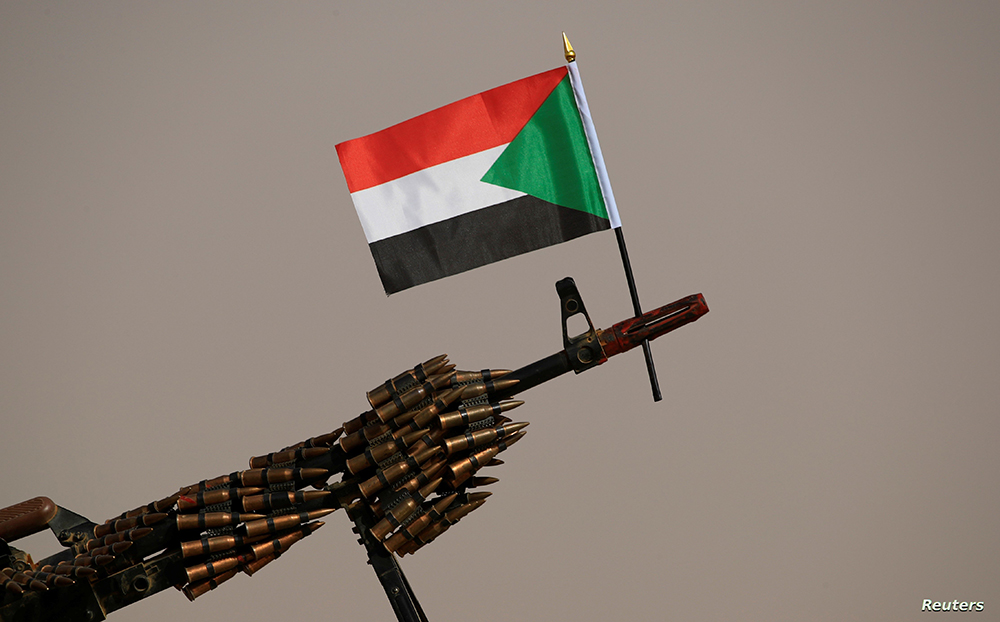
Challenges of Building a New Political System in Sudan (1/3)
By Montaser Ibrahim
While we will minimize delving into theoretical introductions about the issues of building the old political system in Sudan, we decide to engage in a dialogue about the challenges of building a new political system. The first shots of the April 15th war marked the beginning of a new era in the debate over the establishment of the national state in Sudan. This era had revolved around wars and conflicts over power, in which the dominant forces in the post-colonial era had succeeded in maintaining their grip on power under conditions that hindered the building of the national state (the essence of the crisis). This crisis reached its peak with the disintegration of the elements of the post-colonial state structure, with the strongest of these elements being represented by the armed forces. They embraced class interests and resisted compromise, making false claims that they were the center of national decision-making, all within the context of the debate over the necessary institutional structure of the state during the transition and democratic transformation in Sudan.
The necessary discussion of the issue of transition and democratic transformation in Sudan must have been apparent to observers and actors alike. It was shocking, as it collided with the structure of state institutions, including the military sector, naturally. Therefore, it was inevitable that the resistance to raising this issue and its details would lead to a real war. The dominant forces had long refused to comply with the requirements of the peace agreements regarding the implementation of security arrangements. These arrangements were initially meant to be clearly defined as restructuring the military sector in its entirety, providing the organizational framework for building military institutions and a bureaucratic sector that aligns with the political change and transition in Sudan. Thus, the April 15th war necessitates a redefinition of the crisis and the requirements for its solution in a way that prevents the old crisis elements from appearing in a new guise. This is what we will call the project of building a new political system in Sudan.
The new political system is being built on the ruins of the old system that ended with the October 15th war, as mentioned earlier, where the armed forces were the last bastion of that system. That system consisted of three fundamental pillars that formed a hegemonic oligarchy that fully controlled the state politically and economically:
The political forces that were active during the colonial era and took charge of state affairs after the end of colonial rule. These forces were represented by the two major sects, the Khatmiyya and the Ansar. These political forces disintegrated over time due to historical shifts and the political upheaval that took various forms, from revolutions to wars. The latest of these was the December 2018 revolution, which highlighted the presence of new generations, political narratives, and aspirations that reveal the desire to enter a new era. The political forces in Sudans post-colonial state have disintegrated, and establishing a new political system became a reality that required integration with other elements to build a national state in Sudan.
The second element in the components of the post-colonial state was the state bureaucracy, which embodied its colonial nature in its relations and ethics. It disintegrated due to a lack of reform and rampant corruption, which was the most prominent political phenomenon of the Salvation regime over the past thirty years. The regime fell because of this corruption and acted as a barrier to the formation of the political system after the revolution. It represented a fortress of resistance against change and transition.
The final element of the post-colonial state is the armed forces, which made relentless efforts to obstruct the transition in all its forms. Its resistance was manifested in harboring the obstructive forces of transition and protecting corruption by controlling the bureaucratic apparatus. Issues related to managing the economic reform process were among the most significant conflicts during the transitional period. The issue of army companies was frequently discussed in this context, revealing the interests of the officer class that controlled the state. The political evolution reached a point where it led to this armed confrontation due to the armys inability to negotiate over a group of interests threatened by the presence of the flawed former political system. Thus, war became the inevitable result of the complexities of the class structure (of the officer corps).
Therefore, through analyzing the nature of the structure of a post-colonial state, recently referred to as the State of the 56, we find that it has lost its ability to continue. It can be described as disintegration, which has lost the possibility of interacting inversely to renew itself as an inevitable result. Therefore, we are now facing the challenge of building a new political system.
So, what are the challenges of building the new political system? First, there is a general consensus on the vision of establishing the national state in Sudan, represented in the slogans of the December revolution as foundational principles. Upon these principles, the political system that Sudanese aspire to is built: freedom, peace, and justice.

